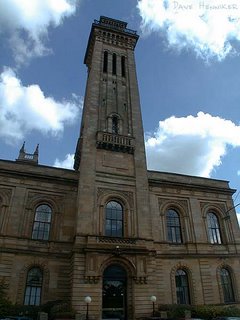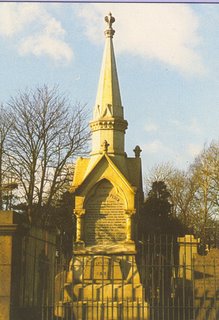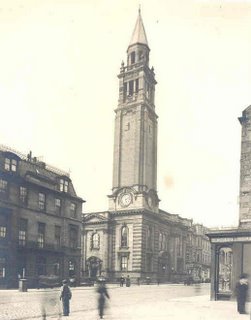 The Browns of Priesthill
The Browns of PriesthillDespite the rout of the covenanters in arms at Bothwell Bridge, there were still some faithful presbyterians in Scotland. Among them was John Brown of Priesthill (a small farm in the hills of Ayrshire near
Muirkirk). Brown was known as 'the Christian Carrier, as he supplemented the small income from his farm by carrying goods for other people.
In 1682 Alexander Peden married John Brown to Isabel Weir. After the marriage Peden said to the bride, "Isabel, you have got a good man to be your husband, but you will not enjoy him long. Prize his company; and keep linen by you to be his winding-sheet, for you will need it when ye are not looking for it, and it will be a bloody one."
In May 1685 Peden returned to Priesthill. He stayed the night with the family, and when the time came for him to depart, Peden was heard to say to himself, "Poor woman, a fearful morning," twice over. And so he went his way.
The following morning John Brown went out to dig peat for fuel. The mist was thick, and it was not until it was too late that Brown realised that Claverhouse, the most ruthless of all the persecutors of the presbyterians, was coming to Priesthill.
Claverhouse's soldiers surrounded Brown and took him to his house, where he was interrogated. John Brown was accused of preaching, but there was no evidence of the charge (in fact Brown had a speech impediment and could not preach). "If he has never preached, meikle (much) has he prayed in his time," Claverhouse answered brutally. "Go to your prayers, for you shall immediately die."
Brown went down to pray, but Claverhouse was so displeased at the length of his prayer that he interrupted. Brown continued to the end of his prayer, and then he was taken out to be killed, his wife and children looking on helplessly. Brown bade fare-well to his family and kissed them, wishing God's blessings on them. Six of Claverhouse's men formed the firing-squad, and most of the bullets struck Brown's head, killing him instantly.
"What thinkest thou of thy husband now, woman?" Claverhouse mocked. "I ever thought much good of him, and now as much as ever," she replied bravely. She was left with her husband's corpse.
Brown was killed between six and seven in the morning, and Peden was ten or eleven miles away, having been travelling through the night. He arrived at a safe house between seven and eight in the morning, in time for family prayer. During those prayers he said, "Lord, when wilt thou avenge Brown's blood?" After prayers his host asked what Peden had meant. "Claverhouse has been at Priesthill this morning and has cruelly murdered John Brown. His corpse is lying at the end of his house, and his poor wife sitting weeping by, and not a soul to speak comfortably with her."
And so it was. There are other reports of Peden's prophetic gift, but I have detained you too long on this matter already, so that the next instalment (God willing) shall be the
last prophecy of Peden.
(Illustration: John Brown's grave at Priesthill. Taken from the
Alexander Peden page)
Labels: Alexander Peden























